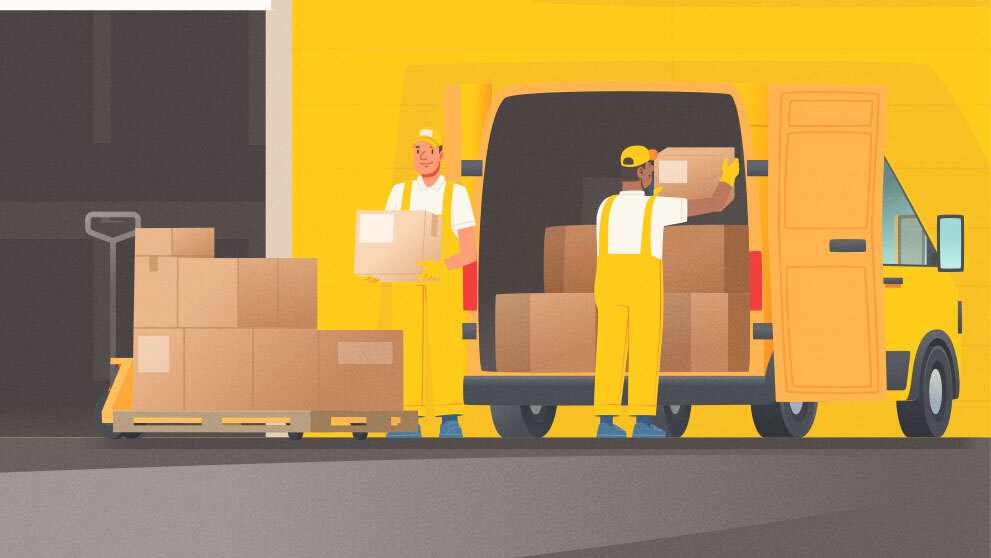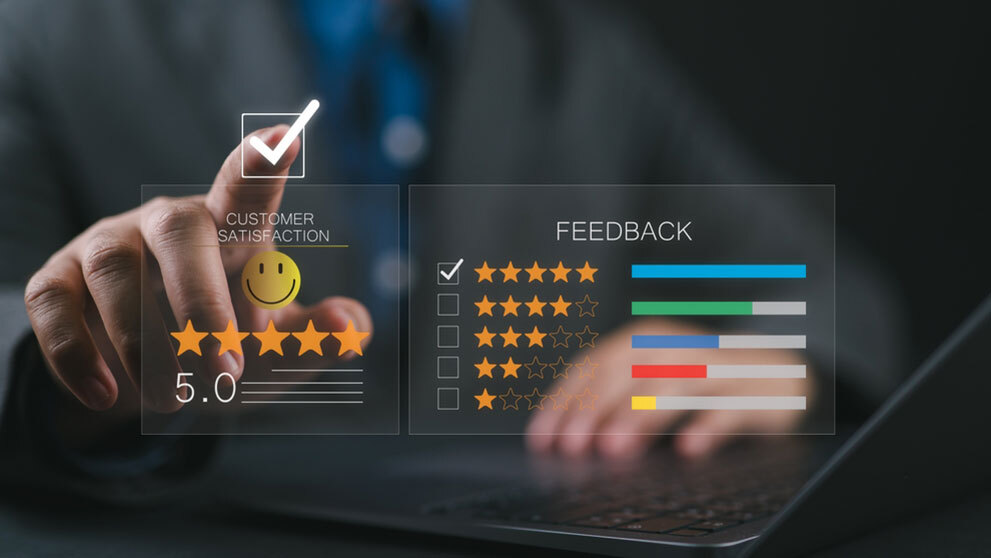Let's face it, only three things are guaranteed: death, taxes, and the constant change technology throws our way. This change can make or break people, businesses, and even entire economies. The first two take, but the third – technological disruption – creates a whole new wave of opportunities to grab.
Take the digital revolution, for example. Remember when e-commerce was just a fancy add-on?
Now, with over 60% of the global population connected online, the internet has become the primary arena for businesses to compete in. South Africa is no stranger to this trend. In just a decade, the digital population of South Africa has skyrocketed from under 25 million to over 45 million! This surge in online activity is driving e-commerce sales, which soared to $3.5 billion in 2021 and are projected to reach $6 billion by 2025. Businesses must pay attention: B2B e-commerce is wielding substantial influence here, molding the very destiny of South African commerce.
The Rise of B2B E-commerce in South Africa
Retail in South Africa is a giant! It's the second-biggest employer after the government itself, and sales make up a whopping 20% of the country's GDP. This powerhouse is only expected to grow even stronger in the coming years. Here's the thing, though: tracking this market hasn't been easy. Traditionally, it's been dominated by all sorts of local shops - think bustling open markets and those friendly roadside hawkers. Most transactions are cash-based, low-value, and happen face-to-face. Supplying these retailers with the goods they need has always been a challenge. Imagine dealing with limited infrastructure, unclear information, constantly changing demand, and even import restrictions. Not exactly smooth sailing!
However, this trend is beginning to change. The COVID-19 pandemic accelerated the adoption of digital technologies, and many consumers started needing to engage with retailers remotely. Consumers who still wanted to go to retailers physically opted for big formal supermarkets where they could physically distance themselves and safely shop. Informal retailers were left to adapt or be left behind. Hence, many of them had to embrace B2B e-commerce. They set up digital storefronts to beat physical boundaries. Now, it’s more common for a spaza shop in Soweto to showcase its wares to customers beyond its immediate neighborhood. The internet is everyone’s marketplace now.
Millennials: South Africa’s B2B Drivers
In today's digital world, data is king for any business hoping to stay ahead of the curve. But where do you even begin? The key data point you absolutely can't ignore is your customer. Who are these new digital shoppers you're trying to reach, and what makes them tick? Understanding their needs and wants is the foundation for building a winning strategy.
According to Merit up to 73% of B2B buyers are now Millennials. One-third of them report they are the sole decision-maker for their department. In South Africa, this demographic represents almost 30% of the population and 51% of the workforce.
Millennials are taking over the B2B game, and they are bringing their digital expertise with them. These tech-savvy peeps expect a smooth, B2C-like experience when buying on B2B platforms. We are talking single-click mobile checkouts, no matter the order size. Plus, they do their research (online, obviously!), so make sure your platform has all the info they need. Now that we know your customers, let’s get into what features you must have to attract and keep them.
B2B Must-haves
Here are the top five B2B e-commerce features that modern South African companies need to succeed.
1. Creating a strong digital infrastructure
A report by Altas VPN says South Africans are the world's biggest internet users, clocking in nearly 10 hours a day, mostly on their phones. This translates to one thing for businesses: lightning-fast, mobile-friendly platforms. South Africans have zero patience for slow or confusing websites. Here's another thing to keep in mind: trust is a big deal in South Africa. Customers want to deal with companies that offer clear, detailed information on products, answer their questions quickly, and make it easy to manage their accounts. Being able to browse order history and track deliveries in real-time is a major plus. On the business side, you'll need features like inventory management, smooth checkout processes, and integrated payment options. The good news? A solid digital infrastructure can handle all of this and keep your South African customers happy!
2. Building a customer-centric website
Building strong customer relationships is the key to success for any e-commerce business. Therefore, you need to make sure that your website has a simple, yet comprehensive, on-site search engine that will enable customers to view and find products in the most efficient way possible.
Invest in solid UI/UX for a seamless user experience that will help users navigate easily and find detailed information about items, and product features. You can also provide video tutorials, mega menus, and competitor comparisons of various products.
In addition to that, imagine features that not only help users find what they need but also give you superpowers to predict what they'll want next. That's the magic of programmatic features. By tracking buying habits, you can see what customers are more prone to buy. Use that intel to target them with the perfect products at the perfect time. This win-win keeps your customers happy and your inventory stocked just right, leading to more sales.
3. Developing a customized marketing strategy
Today’s customers expect personalized buying solutions that match their choices and preferences, and for your B2B business to tap into the trends that drive their preferences in ways that increase sales and profits, you will have to throw in fresh and customized product recommendations for each of your new buyers, based on data-driven assessments of their search behavior on the platform. These product recommendations will help you display the right items to the buyers and earn additional income for their business.
4. Integrating an omnichannel sales approach
Want to give your customers an experience smoother than butter? It's all about building a strong omnichannel strategy. This fancy term means creating a seamless experience across ALL your channels. Imagine your customer browsing products on their phone at lunch, then heading to their desktop later to finalize the order – the entire process should feel connected and effortless. Whether they are shopping online, on their phone, calling in, or even visiting a physical store, it should all be one big, happy buying experience. This is the future of B2B e-commerce, and it's the key to keeping your customers happy and coming back for more!
5. Partnering with trustworthy third-party logistics
Integrating with reliable third-party logistics can be immensely beneficial for B2B companies to maintain a sufficient supply chain and on-time delivery of goods. DHL Express delivery takes pride in being the best when it comes to the speed, convenience, and traceability of a shipment.
With our Express courier services, you don’t have to worry about your cross-border e-commerce orders. Our in-house team of international experts is proficient in handling international shipments, thus increasing the competitiveness of a B2B e-commerce company. Additionally, we have the expertise in managing and clearing your shipments from Customs authorities along with providing a real-time order tracking feature.
You can get all these and more when you open a DHL Business Account with us.
- https://lrs.org.za/wp-content/uploads/2023/01/Retail-Sector-Report-2022.pdf
- https://www.dailymaverick.co.za/opinionista/2022-01-25-long-road-ahead-for-the-retail-sector-particularly-e-commerce/
- https://gitnux.org/ecommerce-south-africa-statistics/#:~:text=In%202021%2C%20total%20e%2Dcommerce,expected%20to%20reach%20%246%20billion.
- https://www.africanews.com/2023/07/18/here-is-why-south-africa-is-the-most-internet-addicted-country-in-the-world//



